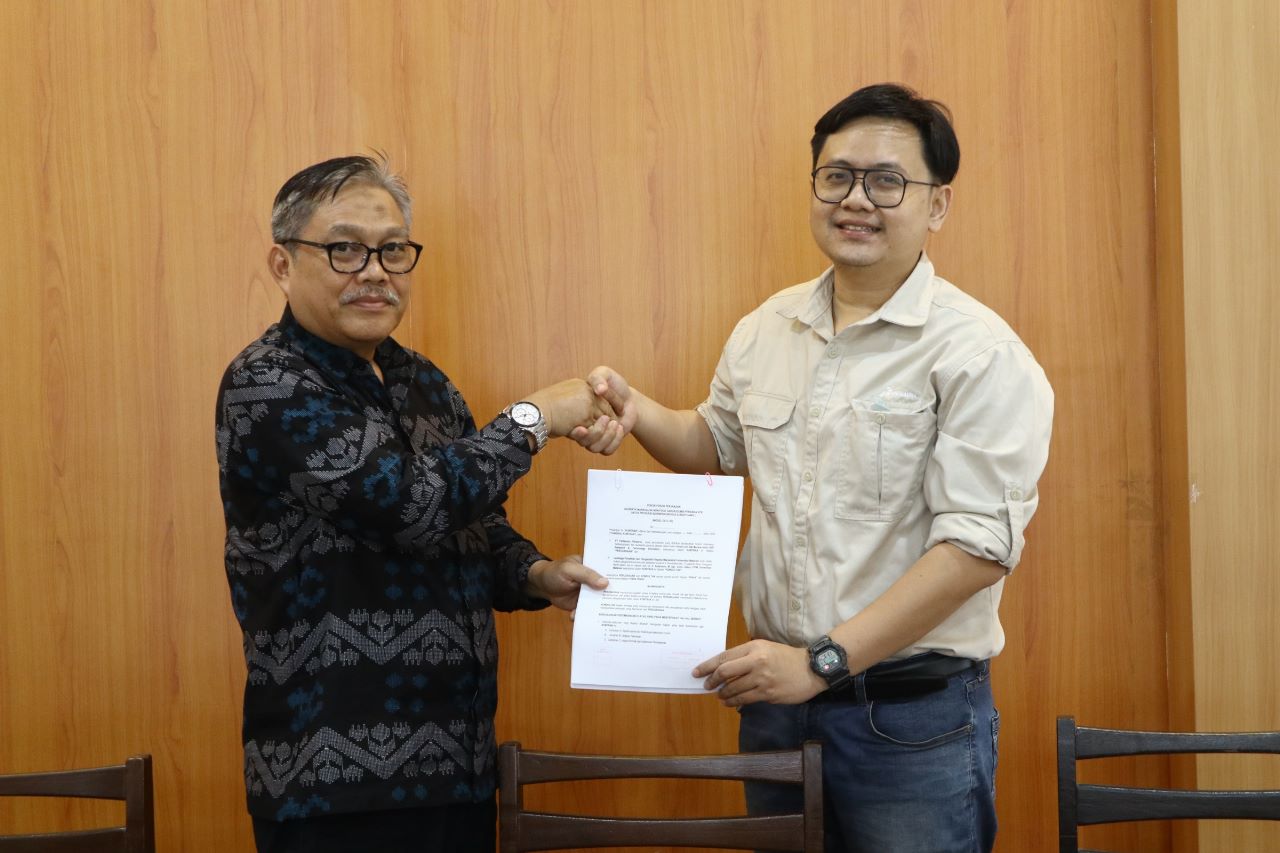PT. Pertamina and Institute for Research and Community Service of Mataram University Held a Research Contract with PT. Pertamina in Non-Food Macroalgae Cultivation

Mataram, Mataram University – The Institute for Research and Community Service of Mataram University held a research contract signing with PT. Pertamina in Non-Food Macroalgae Cultivation in NTB Waters for bioenergy production (biogas and bioethanol). This activity was Located in the main courtroom on Friday (16/6). the activity was attended directly by the Chairman of Institute for Research and Community Service of Mataram University, Dr. Ir. Sukartono, M.Agr., and accompanied by Dr. Nunik Cokrowati, S.Pi., M.Si. as Head of Research and PT. Pertamina.
In his speech, the Head of Institute for Research and Community Service of Mataram University , Dr. Ir. Sukartono, M.Agr. conveying that Indonesia as an archipelagic country which is rich in biodiversity has abundant bioenergy raw materials, where one source of bioenergy can come from macroalgae / seaweed.
“Macroalgae / seaweed can be used as biogas / bietanol because it has low lignin levels and rich in carbohydrates, so bioenergy from the use of macroalgae / seaweed can be an alternative in order to strengthen research synergy in the field of waters, which is expected to make a major contribution in Non-Food Macroalgae Aquaculture in NTB waters as a production granary bioenergy, both biogas and bioethanol, as an effort to develop renewable energy, “said the chairman of Institute for Research and Community Service of Mataram University.
Meanwhile, Dr. Nunik Cokrowati, S.Pi., M.Si. as a lecturer of the Aquaculture study program, Faculty of Fisheries, University of Mataram who is also the Head of the Research Team explained that NTB has extraordinary seaweed potential in terms of type and quantity.
“The extraordinary seaweed owned by NTB, namely Sargassum sp. which is classified as brown seaweed and is used as a source of biogas and bioethanol, so the efforts need to be made to cultivate Sargassum sp,” she said
Furthermore, Dr. Nunuk explained Sargassum sp. is an edible seaweed / brown macroalgae (Phaephyceae) that lives in subtidal and intertidal areas. The chemical which containe in Sargassum sp. is varied from species to species.
However, the problem that exists in Indonesia related to this potential is the availability of Sargassum in Indonesian marine waters naturally and it has not been cultivated to maintain the sustainability of raw materials for biogas production.
“Currently, the majority of coastal locals consider that Sargassum has no economic potential,” she continued.
Sargassum sp. is still considered as marine debris because there is still a lack of public knowledge about the benefits of seaweed, so that its utilization is relatively minimal. It is important to do biomass production of the genus Sargassum on the coast of Indonesia bacuase the low efforts to cultivate seaweed of the two types, as well as the large potential for future development considering that the Indonesian archipelago is very vast with 70% of the ocean, and an archipelagic country that has the second longest coastline in the world, as well as Indonesia’s location in the middle of the world’s coral triangle.
The purpose of this research is to conduct Sargassum potential studies, to assess the suitability criteria for Sargassum cultivation land, to conduct Sargassum cultivation in NTB waters for Biogas & Bioethanol raw materials, and to increase the capacity building of seaweed cultivators in West Nusa Tenggara.
